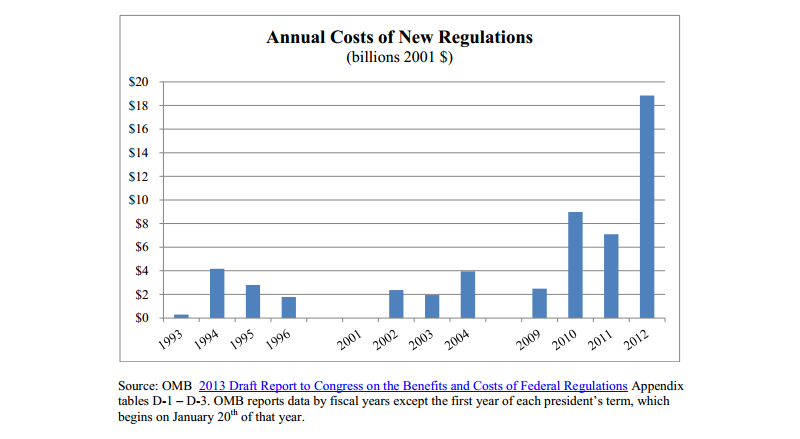As West Virginians were learning Thursday of a devastating chemical spill in the Elk River that has rendered water undrinkable for 300,000 people, the US House of Representatives was busy gutting federal hazardous-waste cleanup law.
The House passed the Reducing Excessive Deadline Obligations Act that would ultimately eliminate requirements for the Environmental Protection Agency to review and update hazardous-waste disposal regulations in a timely manner, and make it more difficult for the government to compel companies that deal with toxic substances to carry proper insurance for cleanups, pushing the cost on to taxpayers.
In addition, the bill would result in slower response time in the case of a disaster, requiring increased consultation with states before the federal government calls for cleanup of Superfund sites - where hazardous waste could affect people and the environment.
The bill amends both the Solid Waste Disposal Act and the Comprehensive Environmental Response, Compensation and Liability Act - often referred to as Superfund, which was created in 1980 to hold polluter industries accountable for funding the cleanup of hazardous-waste sites.
There are over 1,300 priority Superfund sites in the US.
The legislation was passed by a vote of 225 to 188, mostly along party lines, with all but four Republicans supporting the bill and all but five Democrats opposing it. One of those Democrats crossing party lines to support the changes to environmental law was Rep. Nick Rahall of West Virginia.
The sponsor of the bill, Rep. Cory Gardner (R-CO), touted the “common-sense” changes as needed economic relief.
"We are five years into this failed experiment of increased government spending, taxation, and regulation," Gardner said in a statement. "The results are clear: The power to grow our economy and put Americans back to work lies in the private sector. With more than 80,000 pages of new federal regulations published in 2013 alone, common-sense revisions of existing rules and regulations are a vital part of ensuring businesses that power our state and local economies are given the capability to grow."
Critics point out that the bill severely weakens environmental protections. Earthjustice and 128 public interest groups said the legislation would “threaten human health and the environment while protecting polluters from liability for the costs of toxic cleanups.” more from RT thank you Terry
H.R. 2279, Reducing Excessive Deadline Obligations Act of 2013
read complete document (pdf, 22 kb)As ordered reported by the House Committee on Energy and Commerce on June 19, 2013H.R. 2279 would amend laws concerning the Environmental Protection Agency’s (EPA’s) oversight of hazardous substances. The bill would authorize EPA to review regulations related to solid waste disposal only when necessary instead of every three years as required under current law. The legislation also would remove a long-expired deadline, which EPA has already met, regarding regulations for the owners and operators of certain types of facilities that produce, transport, treat, store, and dispose of hazardous substances. In addition, the bill would direct that any financial requirements established by EPA for such owners and operators do not preempt state or other federal agency requirements.
The bill also would require EPA to report to the Congress any financial responsibility requirements it intends to establish under the Comprehensive Environmental Response, Compensation, and Liability Act. Finally, H.R. 2279 would require certain facilities holding flammable or explosive materials to report on those holdings to state and local officials.
Based on information from EPA, CBO expects that removing the current requirement to review certain regulations every three years would reduce administrative costs. However, some of those savings in administrative expenses would be offset by spending on the new requirement to report to the Congress any financial responsibility requirements. CBO estimates that, on balance, implementing this legislation would not have a significant net impact on spending that is subject to appropriation over the 2014-2018 period. Enacting H.R. 2279 would not affect direct spending or revenues; therefore, pay-as-you-go procedures do not apply.
Administration’s Regulatory Record Rests on Dubious Assumptions

Source: Susan Dudley, Director of George Washington University’s Regulatory Studies Center.
White House Press Secretary Jay Carney, during his press briefing on Wednesday, gave the Obama administration a pat on the back for writing federal rules. Here’s the context:
Q: Hi. Different subject altogether. This morning, at the U.S. Chamber, Tom Donohue was talking about the state of business. And he said one of business's biggest concerns right now is overregulation. He accused this administration of regulatory overreach. Is the president satisfied with the level of regulation on businesses?MR. CARNEY: Well, let me say a couple of things about that. The president does not believe that we have to choose between protecting the health, welfare and safety of Americans and promoting economic growth, job creation, competitiveness and innovation.We can do both and we are doing both. The net benefits of rules finalized through the fourth fiscal year of this administration were $159 billion. That's the net benefits. This is almost four times the net benefits through the fourth fiscal year of the previous administration.
Carney’s number comes from the Office of Management and Budget’s Draft 2013 Report to Congress on the Benefits and Costs of Federal Regulations and Unfunded Mandates on State, Local, and Tribal Entities.
Has the administration gotten better at writing federal rules? Not quite, Keith Holman, Legal Policy Counsel for Environment, Technology and Regulatory Affairs at the U.S. Chamber, pointed out in comments on OMB’s draft report last July, virtually all of the the claimed benefits of recent federal regulations depend on reductions in one kind of air pollution: fine particulate matter (PM)--which is already controlled under older rules:
EPA has relied on reductions of ambient PM2.5 as the primary driver of benefits in its Clean Air Act regulations – even for regulations not specifically designed or intended to protect the public from exposures to fine particulate matter. MORE

No comments:
Post a Comment